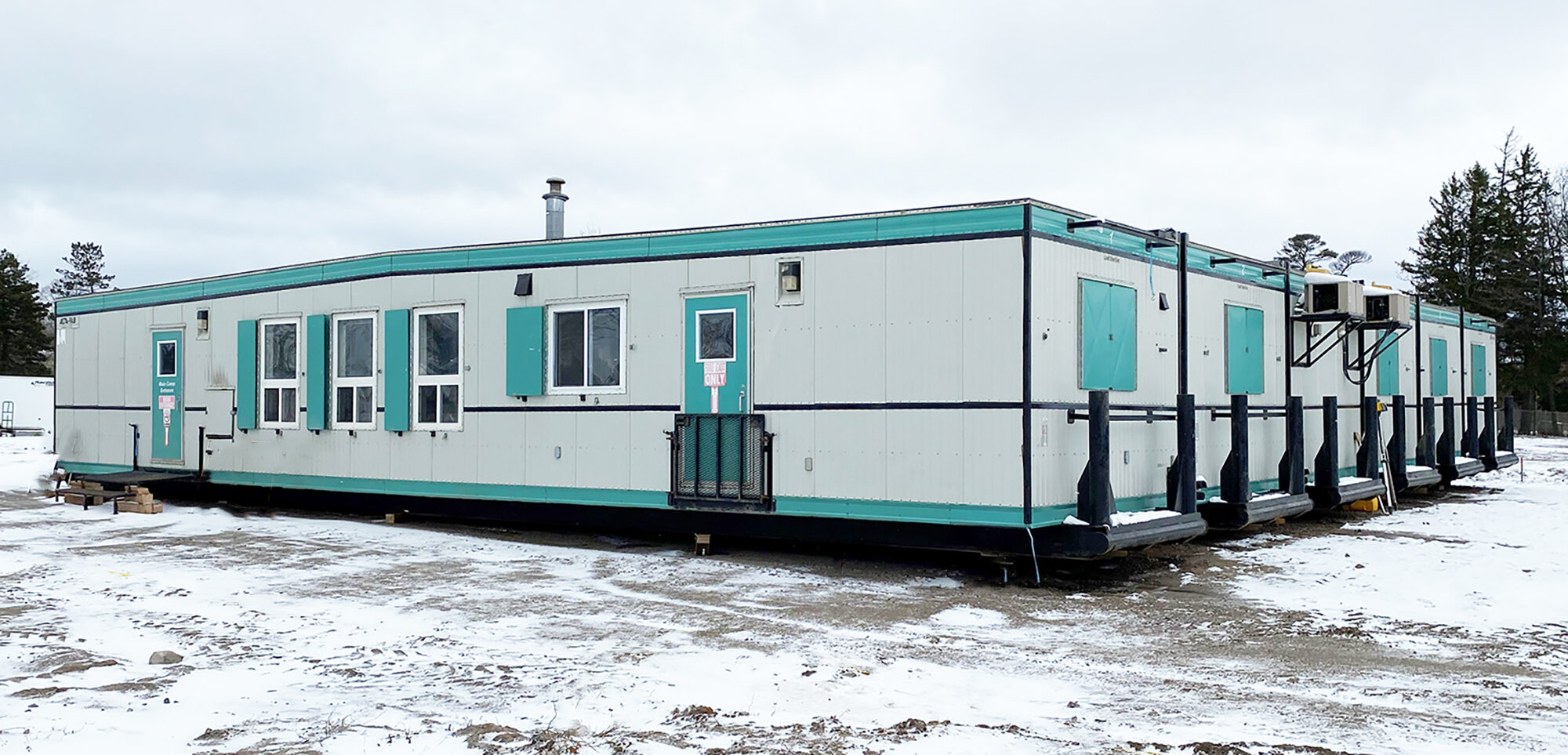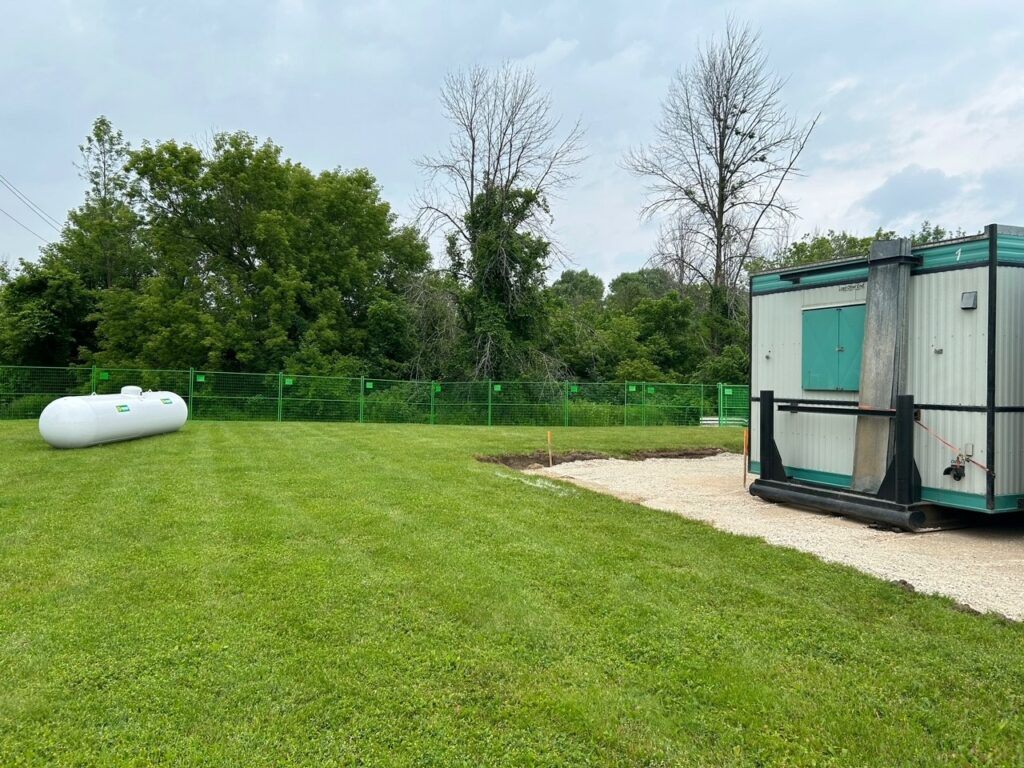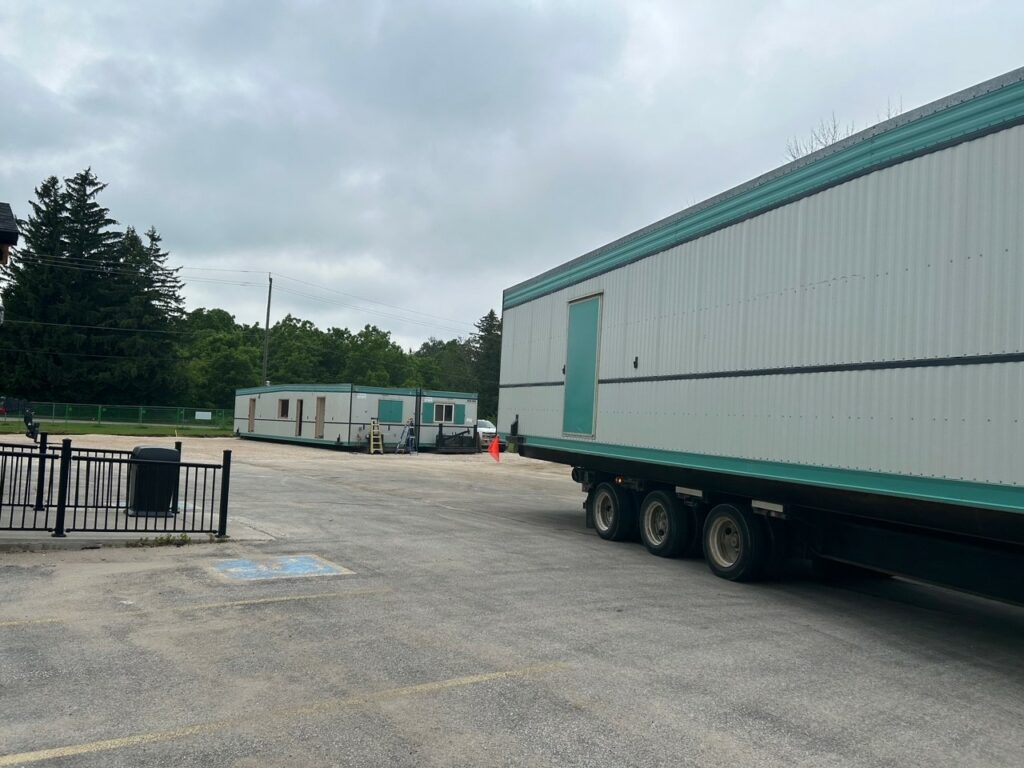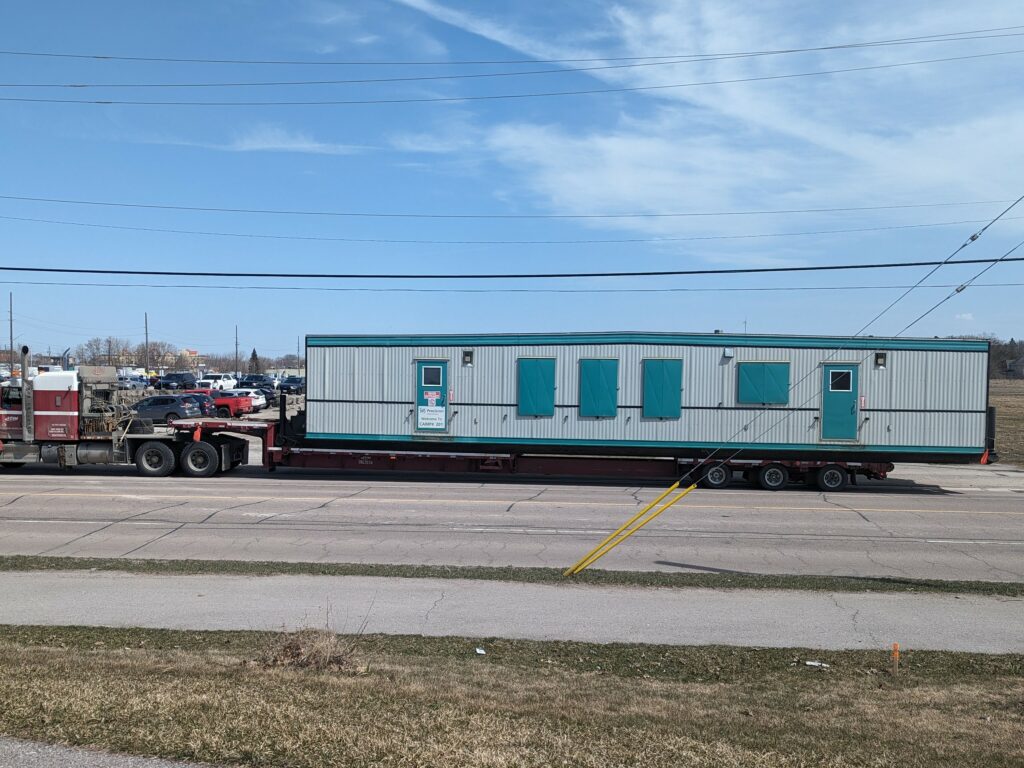
About Supportive Rapid Re-Housing
The County’s Supportive Rapid Re-Housing Program (SRRP) is a temporary program designed to assist individuals who are facing homelessness transition into permanent housing within a short period of time (typically 180 days). Clients are considered low-risk individuals who have been impacted by situational homelessness.
People who live in the SRRP units are supported through all aspects of the move-in process, including:
- unit viewings
- reviewing leases
- furnishing apartments
- establishing connections
On-going follow-up supports are provided to ensure clients are adapting well and support they require is available.
During the SRRP housing period, residents will be provided full wrap-around services including mental health, addiction, employment supports and other needs.

Current SRRP sites
Collingwood
IMPORTANT UPDATE: Modular units are arriving at the site beginning June 21, 2024, with connections occurring in the following weeks.
The County is partnering with The Common Roof to work with the Town of Collingwood, to deliver a new Supportive Rapid Rehousing Support program to help address needs within the Collingwood area.
A modular, pre-built housing structure will be placed on a Town of Collingwood approved area of The Common Roof property located at 199 Campbell Street, Collingwood (home to 6 community based non-profit organizations and groups), as of June 21, 2024 to serve as housing for the SRRP program. The modular structure will be placed on the north-west portion of the property.
The SSRP is not a shelter; it is a temporary home for individuals as they prepare for independent, and permanent, living situations. The County will be contracting a qualified agency to provide comprehensive, 24/7 on-site services, staffed with trained professionals. The provider will be confirmed in the coming month and information about the agency and specific services provided will be updated at that time.
Our aim is to have the program operational this summer. This is a temporary structure with the goal of running the program for approximately five years in this location. The modular structure can house between 10 and 15 people at a time.
Relevant Links:




Orillia
The County of Simcoe is pleased to announce that it has partnered with Elizabeth Fry Society Simcoe Muskoka to operate, manage, and run programs at the County’s Supportive Rapid Re-Housing Program (SRRP) temporary facility in Orillia. After consultations with the City of Orillia, the program is located at 175 West St. S., as approved by Orillia City Council.
With the selection of the Elizabeth Fry Society Simcoe Muskoka as the operator, this site will provide supportive rapid re-housing to unhoused youth ages 16 to 24 in the Orillia area as they find stable, reliable housing and learn many of the skills needed for successful independent living in the community.
News Release(s):
- County and City Expanding Rapid Re-Housing Support in Orillia
- Important update on Supportive Rapid Re-Housing Program in Orillia
Relevant Link(s):

Dispelling Common Myths
Affordability and Choice Today (ACT) is an initiative funded by the Canada Mortgage and Housing Corporation. ACT, operated by the Federation of Canadian Municipalities (FCM) with the participation of the Canadian Home Builders’ Association and the Canadian Housing and Renewal Association. ACT lists some common NIMBY objections and responses in its guide “Housing in my Backyard: A Municipal Guide for Responding to NIMBY”.
Reality: Many studies on affordable housing conclude that there is no impact on property values. One study done in Toronto found that, “there was no evidence that the existence of the supportive housing buildings studied has negatively affected either property values or crime rates in the neighbourhood. Property values have increased and crime decreased in the period considered by the study.”
Reality: Like any new development, a higher density or infill-housing proposal must meet the municipality’s planning and engineering standards. In addition, multiple-family dwellings near quality transit services are likely to attract residents with lower levels of car ownership, as are dwellings geared to older people, people with disabilities, and families with lower incomes.
Reality: Generally, higher-density housing needs less extensive infrastructure than new development – features like piped water, sewer services, schools and roads already exist. Also, higher-density development and infill can provide the larger customer base needed to increase the range and quality of available services (such as public transit).
Reality: Often, the future occupants of new affordable housing already live in the neighbourhood. They are people sharing an apartment with other family members or friends, or struggling to pay market rent by giving up meals or having to walk because they cannot afford transit fares. Inclusive communities provide housing opportunities for all.
Reality: A Canadian study of 146 supportive housing sites concluded that “there was no statistically significant evidence that supportive housing led to increased rates of reported violent, property, criminal mischief, disorderly conduct or total crimes.” In fact, the future occupants of new affordable housing often already live in the neighbourhood.